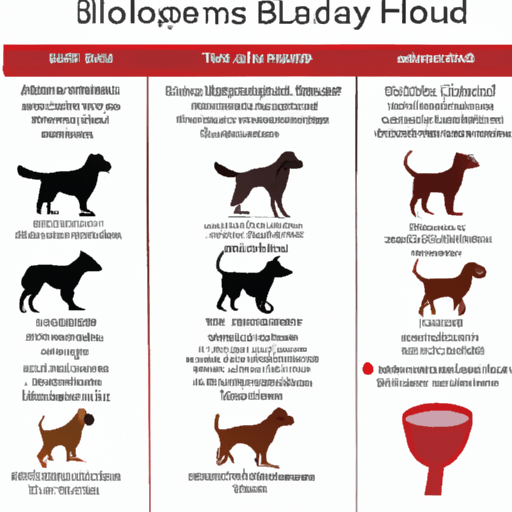“`markdown
What Causes Bloody Stool in Dogs?
As a caregiver, you want to ensure the health and wellbeing of your dog. Noticing a bloody stool can be a frightening sight, but understanding the reasons behind it can help you take the appropriate course of action.
1. Gastrointestinal Issues (GI)
GI issues are a common cause of bloody stool in dogs. Conditions such as gastroenteritis, an inflammation of the stomach and intestines, can lead to blood in the stool.
- Colitis: This is an inflammation of the colon, leading to bloody diarrhea.
- Gastroenteritis: This condition results from inflammation of the stomach and intestines.
| Causes of Gastroenteritis | Symptoms |
|---|---|
| Eating spoiled food | Vomiting |
| Ingesting foreign objects | Loss of appetite |
| Bacterial infection | Abdominal pain |
2. Parvovirus
Parvovirus is a highly contagious viral disease that can cause a bloody stool in dogs. It’s vital to vaccinate your pet against this potentially deadly disease.
3. Internal Parasites
Internal parasites, such as hookworms and whipworms, can lead to bloody stool. Regular deworming and stool examinations can help detect these parasites early.
4. Anal Sac Disease
The anal sac disease can cause bloody stool in dogs. If your dog is scooting its rear end along the ground, it might be suffering from this condition.
5. Tumors or Polyps
Tumors or polyps in the rectum or colon can also lead to bloody stool. If your dog is older and has persistent bloody stool, it’s essential to consult your vet for a thorough examination.
Frequently Asked Questions (FAQ)
Q: Should I be worried if my dog has a bloody stool?
A: It can indicate a range of health issues. It’s best to consult your vet if you notice it.
Q: How can I prevent my dog from getting a bloody stool?
A: Regular vet check-ups, a balanced diet, and keeping your dog’s environment clean can help.
Q: Can a bloody stool be a sign of cancer in dogs?
A: In some cases, yes. Persistent bloody stool should be checked by a vet.
Q: What should I do if my dog has a bloody stool?
A: Contact your vet immediately. They can provide guidance based on your dog’s symptoms.
Remember, your dog’s health is always the top priority. If you notice any changes in your dog’s stool, don’t hesitate to consult with your vet.
“`



